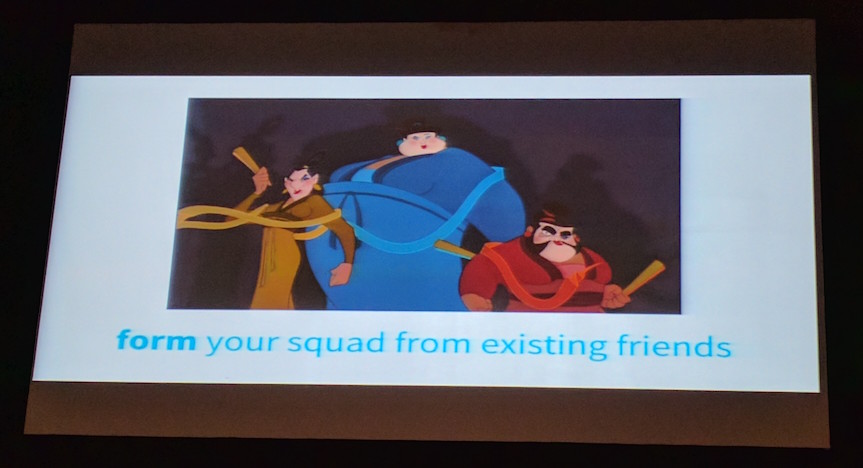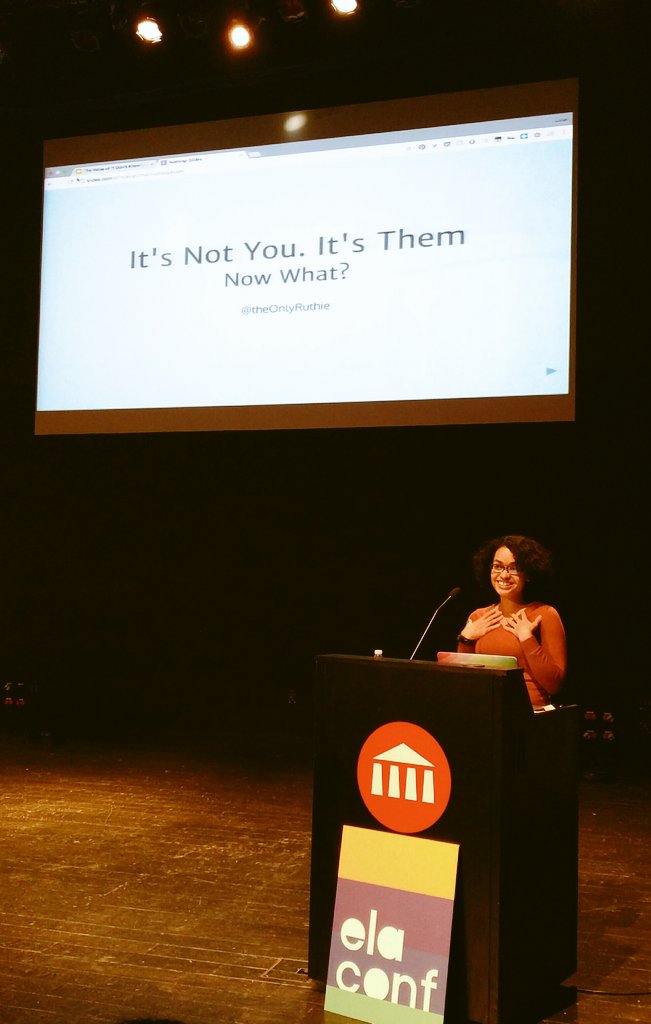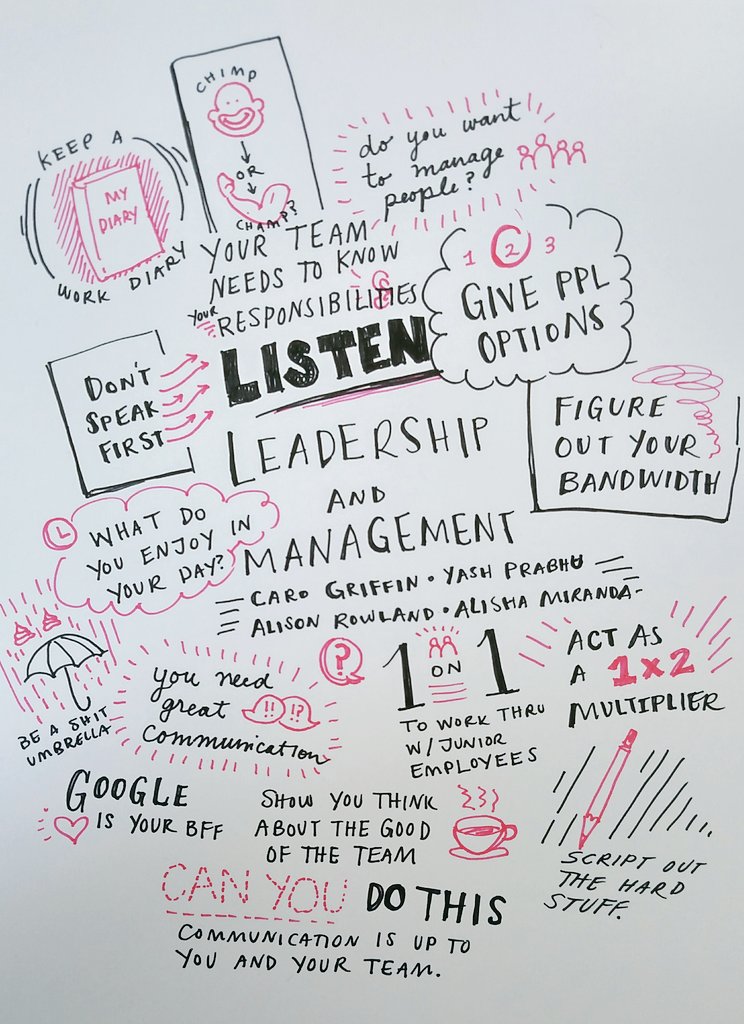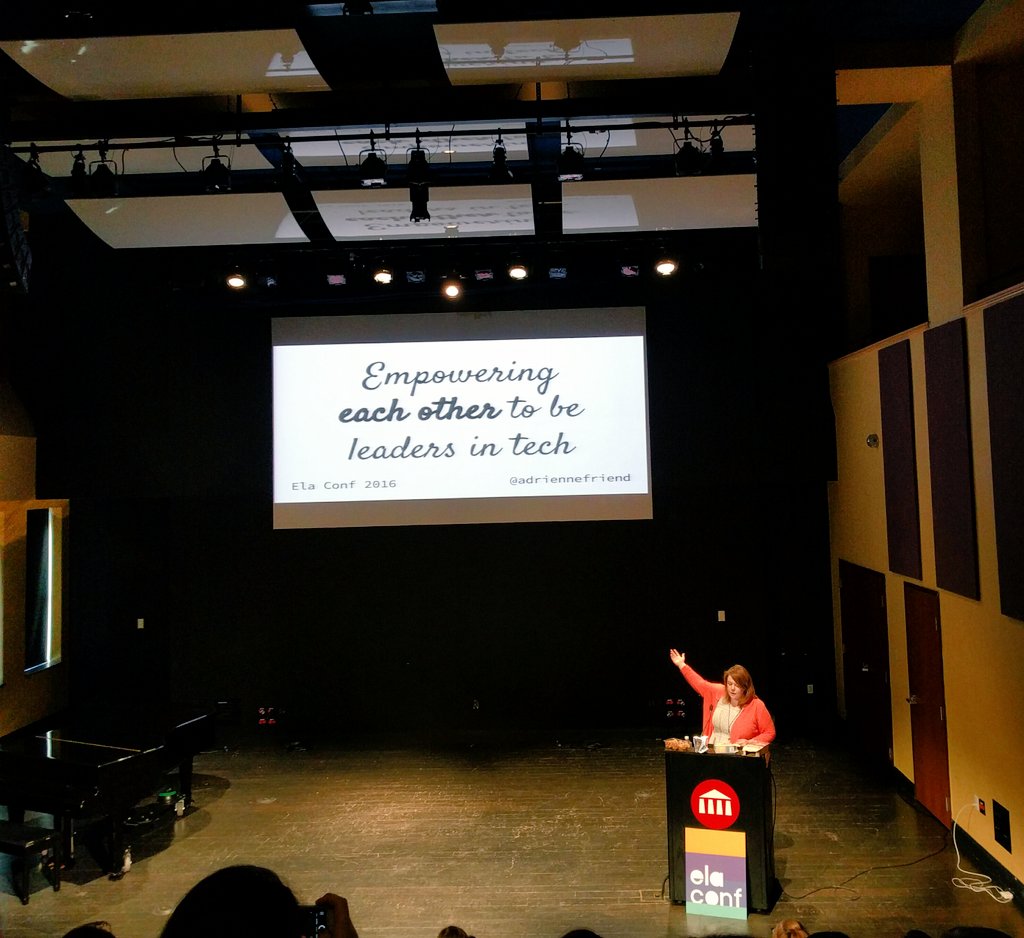We started with a light breakfast and moved right into the talks. Again, so many positive vibes and happy voices. Everyone is clearly excited to be here!
We started off with some stories from the organisers about how they got into tech and why they decided to work with Ela Conf. It's always nice to hear people’s stories and better understand where the conference comes from.

Five things I Leared About Leadership from my Son, by Mary Scotton
- Get your hands dirty - be completely involved in, and committed to, your work. Other people will notice that you’re willing to get shit done.
- Break the rules - a.k.a. don’t do what your told. Your job isn’t just to do what you’re told, it’s to think, make considered decisions, and build good stuff.
- Go to coffee - spending authentic time with people (in and out of work) builds community and your network. Make an effort to keep moving relationships forward.
- Respect other perspectives - as a leader, it’s your job to make work a safe place to share different ideas. This is related to gender/race/etc. diversity, but it’s more about diversity of thought and allowing others to open up.
- Be you - if you’re holding yourself back you’re not able to fully do the above and connect with people.
Never Accept the First Offer, by Tiberius Hefflin
- Pay gap between women and men still exists. Companies can help by doing pay auditing (Atlassian does this - yay!), having blind applications, and setting up rules to favour people asking for more information around pay.
- Start small on things you don’t care about so you can get used to the process.
- Do your research before you start negotiating - what really is a fair offer.
- Make a list of your skills are and what you bring to the table. This can help keep you focused and remind you why you’re asking for what you’re asking for.
- Ask for a pay review in six months so you have time to show them what you’re worth.
The Respect Effect, by Timirah James
- You need to teach people how to treat you, and what you will and won’t put up with. Make it clear when you don’t feel respected.
- Treat yourself the way you want others to treat you - this effect works from the inside out.
- The way that you’re perceived is something you can change, but you have to be mindful of it all the time - this takes effort!
Get yourself a squad!, by Nicole Zhu
- “Coding is not a skill that you just innately have.”
- Staying in tech is much harder than starting
- A squad is there to support you and your work - they’re friends who have the context of your work experience
- Your friends can give you more authentic feedback and keep you energized

Leadership and management (panel)
- It’s all about communication - listening to your team members and getting them to open up about difficulties they’re experiencing, give time for others to offer suggestions before jumping in.
- 1:1s should be more than just status checks; ask about life and future roles.
- If you’re wondering about moving to leadership, think about your current job: what kinds parts do you enjoy the most? (Coding vs. working with people vs. strategy meetings)
- Script difficult conversations (and practice with easy conversations!) so you know what you’re going to say and can stay calm
- Rotating roles (like scrum master) so others in the team can know what’s involved
Resources mentioned:
- The broad experience
- Lara Hogan
- Rands in Repose leadership slack
The Value of “I Don’t Know”, by Elise Wei
- Saying “I don’t know” helps fight imposter syndrome and makes others more comfortable with being honest about what they know too.
- Don’t just ask for the answer, ask how they found the answer
- Builds up a culture of learning - you can encourage others to admit when they don’t know something and all learn together.
It’s not you, it’s them. What next?, by Ruthie Floats
- It’s all about feelings. Your salary doesn’t actually matter, it’s how you feel about your salary that really matters.
- Determine the feeling, then the cause, then come up with an action. “I feel (blank) because (blank). So I will (blank).”
- What feelings are you hoping to get out of working in open source? Look for open source projects that meet these needs.

Getting Involved and Giving Back As A Beginner, by Lisa Yoder
- Document what you know, what you’re learning, and what you’re struggling with
- Keep lists of things you did that were hard - refer to these when you need a boost (like my moments of win list!)
- Noobs often explain things better since they just recently learned it. “You can be an expert at being a beginner.”
Take up space: claiming your place in tech, by Adrienne Lowe
- Show yourself the same compassion you would show others (kinda a reverse golden rule)
- Celebrate the little wins too since they’re practice for celebrating the big wins; these wins help fight imposter syndrome
- “Asking for help when you need it is standing up for yourself.”
- There’s a difference between real life struggle (food, safety, belonging, opening up to others), and learning struggle. Take a deep breath and understand the difference.
- Reference to We should all be feminists
comments powered by
Disqus

